Abstract
The objective was to investigate how prostate cancer and its treatment affects sexual, urinary and bowel functions and to what extent eventual complications cause distress. A questionnaire was sent to 431 men aged 50-80 years with prostate cancer diagnosed in 1992 in the Stockholm area (Sweden) and 435 randomly selected men with a similar age distribution. Sexual function, as compared with their youth, was diminished in a majority of all men. The prostate cancer patients were, however, more likely to report low frequency and/or intensity in all aspects of sexual function. A majority of the men were distressed by a waning sexual capacity. The proportion of men with prostate cancer who were severely distressed owing to a decline in sexual function was larger than in the reference group. The willingness to trade off an intact sexual function for long-term survival varied considerably among the men in the reference group. Urinary and bowel symptoms were less common than a waning sexual function in both groups, and few appeared to be severely distressed by urinary or bowel symptoms. A decline in sexual functions was the most common cause of disease-specific distress in men with prostate cancer.
Full text
PDF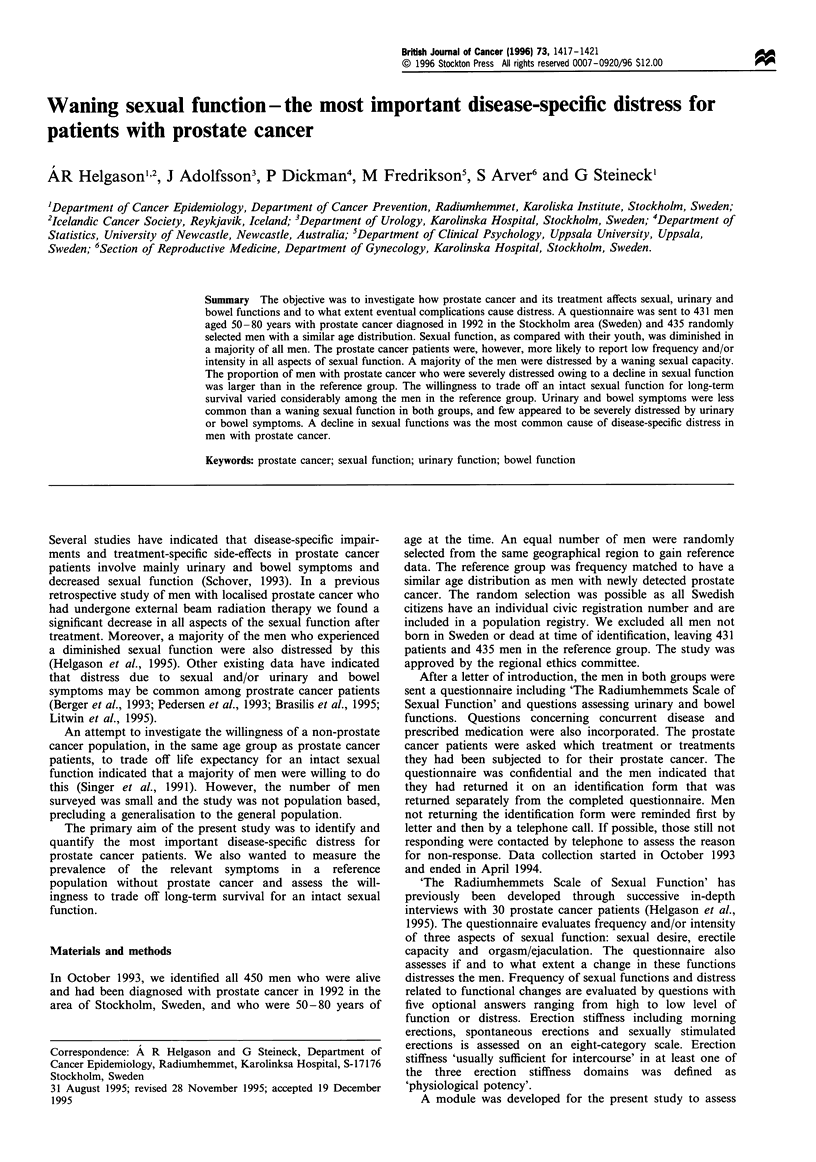
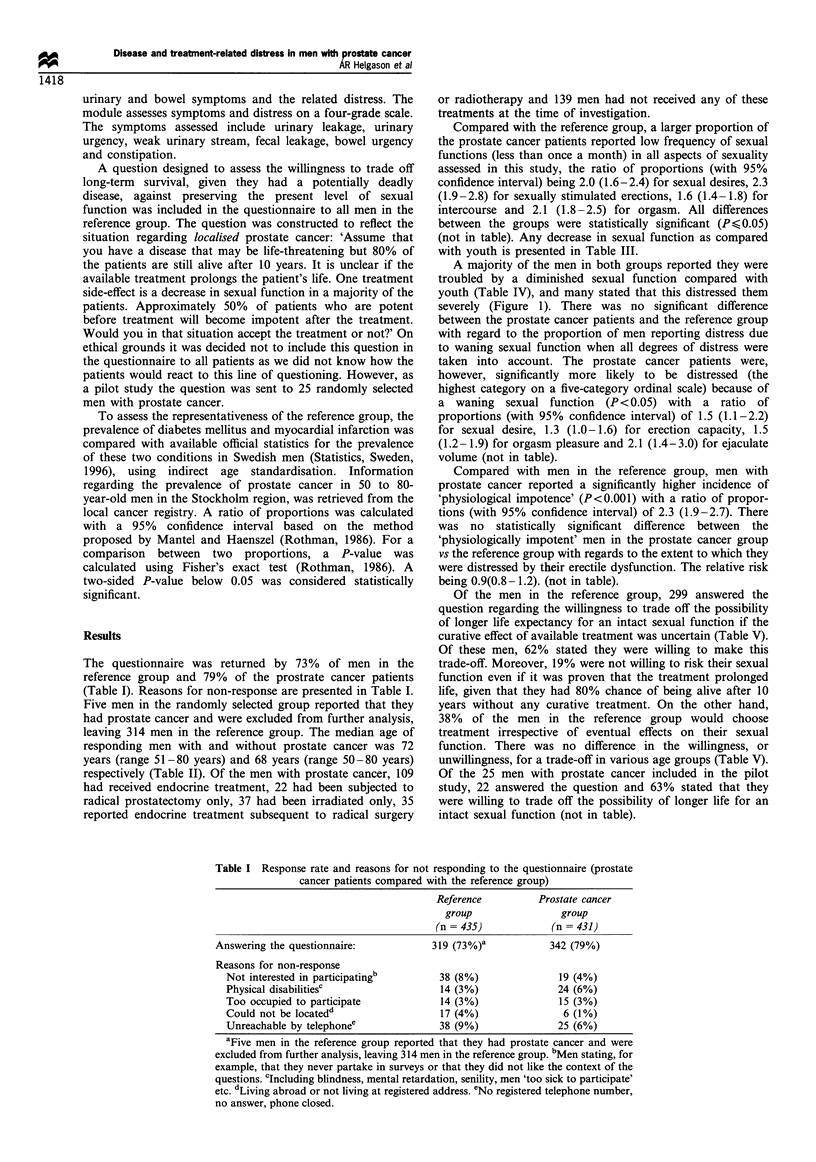
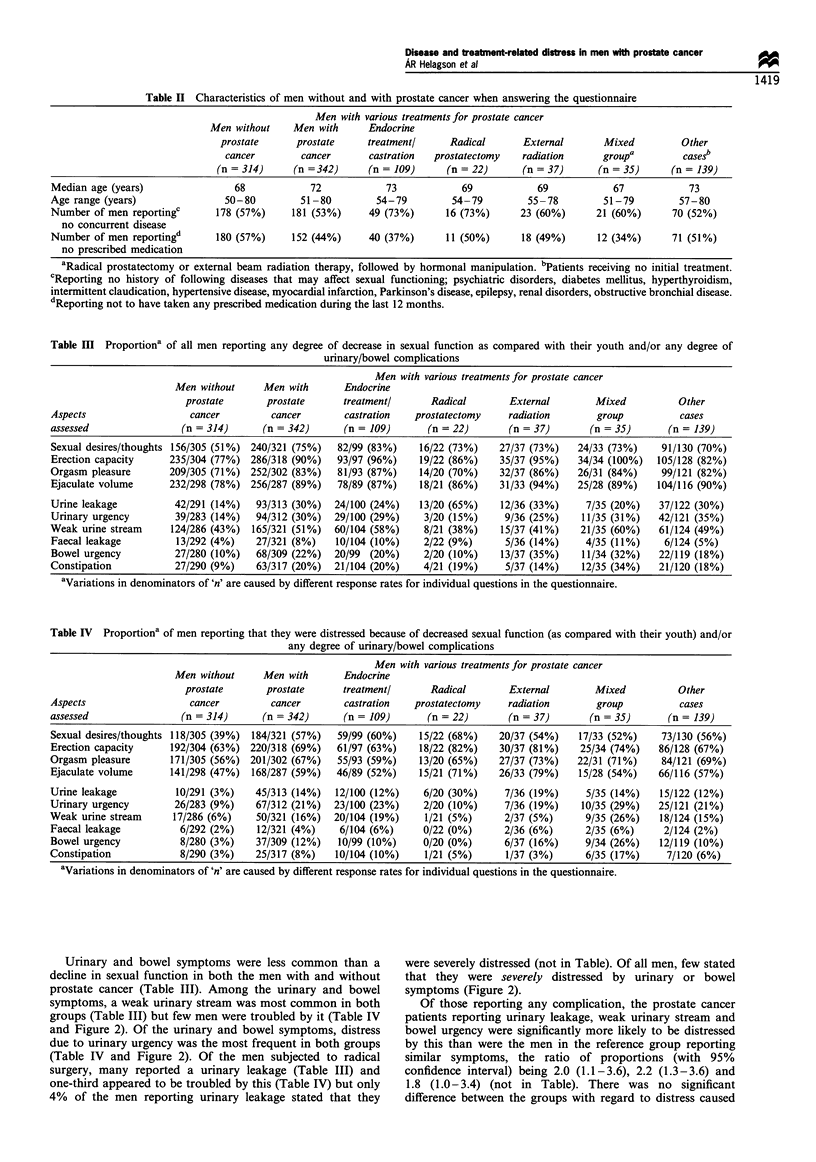
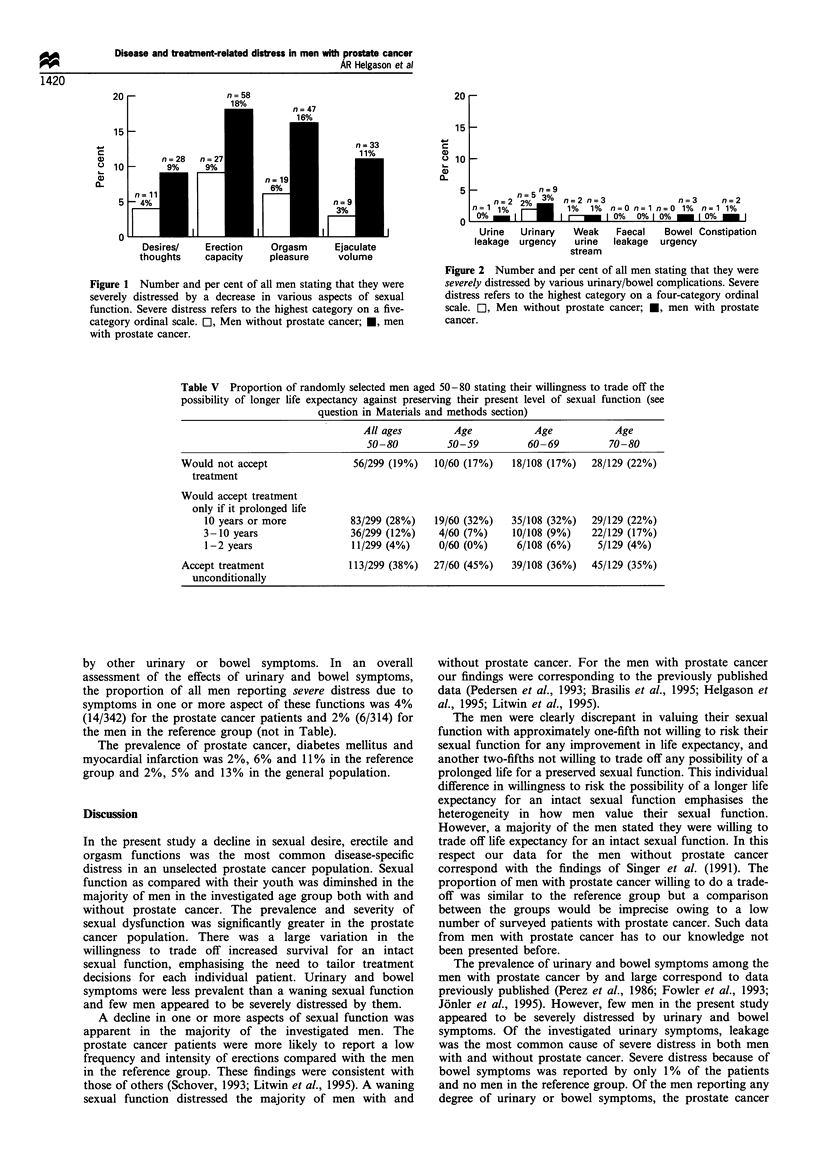
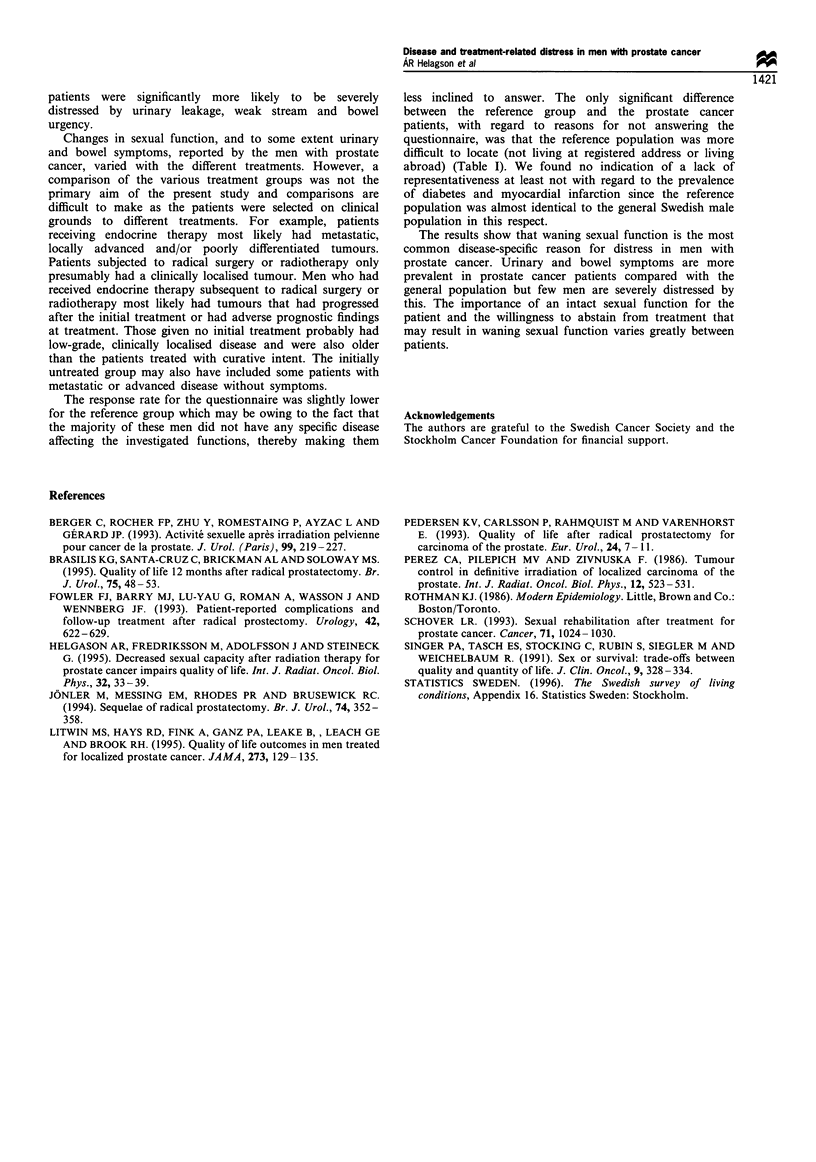
Selected References
These references are in PubMed. This may not be the complete list of references from this article.
- Berger C., Rocher F. P., Zhu Y., Romestaing P., Ayzac L., Gérard J. P. Activité sexuelle après irradiation pelvienne pour cancer de la prostate. Evaluation par questionnaire. J Urol (Paris) 1993;99(5):219–227. [PubMed] [Google Scholar]
- Braslis K. G., Santa-Cruz C., Brickman A. L., Soloway M. S. Quality of life 12 months after radical prostatectomy. Br J Urol. 1995 Jan;75(1):48–53. doi: 10.1111/j.1464-410x.1995.tb07231.x. [DOI] [PubMed] [Google Scholar]
- Fowler F. J., Jr, Barry M. J., Lu-Yao G., Roman A., Wasson J., Wennberg J. E. Patient-reported complications and follow-up treatment after radical prostatectomy. The National Medicare Experience: 1988-1990 (updated June 1993). Urology. 1993 Dec;42(6):622–629. doi: 10.1016/0090-4295(93)90524-e. [DOI] [PubMed] [Google Scholar]
- Helgason A. R., Fredrikson M., Adolfsson J., Steineck G. Decreased sexual capacity after external radiation therapy for prostate cancer impairs quality of life. Int J Radiat Oncol Biol Phys. 1995 Apr 30;32(1):33–39. doi: 10.1016/0360-3016(95)00542-7. [DOI] [PubMed] [Google Scholar]
- Jønler M., Messing E. M., Rhodes P. R., Bruskewitz R. C. Sequelae of radical prostatectomy. Br J Urol. 1994 Sep;74(3):352–358. doi: 10.1111/j.1464-410x.1994.tb16626.x. [DOI] [PubMed] [Google Scholar]
- Litwin M. S., Hays R. D., Fink A., Ganz P. A., Leake B., Leach G. E., Brook R. H. Quality-of-life outcomes in men treated for localized prostate cancer. JAMA. 1995 Jan 11;273(2):129–135. doi: 10.1001/jama.273.2.129. [DOI] [PubMed] [Google Scholar]
- Pedersen K. V., Carlsson P., Rahmquist M., Varenhorst E. Quality of life after radical retropubic prostatectomy for carcinoma of the prostate. Eur Urol. 1993;24(1):7–11. doi: 10.1159/000474254. [DOI] [PubMed] [Google Scholar]
- Perez A. A., Pilepich M. V., Zivnuska F. Tumor control in definitive irradiation of localized carcinoma of the prostate. Int J Radiat Oncol Biol Phys. 1986 Apr;12(4):523–531. doi: 10.1016/0360-3016(86)90059-3. [DOI] [PubMed] [Google Scholar]
- Schover L. R. Sexual rehabilitation after treatment for prostate cancer. Cancer. 1993 Feb 1;71(3 Suppl):1024–1030. doi: 10.1002/1097-0142(19930201)71:3+<1024::aid-cncr2820711421>3.0.co;2-2. [DOI] [PubMed] [Google Scholar]
- Singer P. A., Tasch E. S., Stocking C., Rubin S., Siegler M., Weichselbaum R. Sex or survival: trade-offs between quality and quantity of life. J Clin Oncol. 1991 Feb;9(2):328–334. doi: 10.1200/JCO.1991.9.2.328. [DOI] [PubMed] [Google Scholar]


